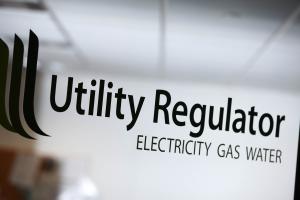
The Annual Retail Energy Market Monitoring (AREMM) Report for 2022 is the latest of a series of Utility Regulator reports that provide a range of information about the retail energy market in Northern Ireland.
The 2022 AREMM merges the relevant quarterly information for the calendar year from the Quarterly Retail Energy Market Monitoring reports (QREMM) and is therefore the summation of Quarter 1 through to Quarter 4 for 2022.
The AREMM report presents data that we collect as part of the Retail Energy Market Monitoring (REMM) framework. REMM requires network companies and suppliers to submit data on a range of indicators to enhance our transparency around market behaviours and regulatory compliance. We use the information outlined in the report to review the progress and impact of supply competition; build knowledge for regulatory decisions; comply with EU Third Package mandatory requirements on market monitoring; allow other interested stakeholders to understand more readily the activity within our energy markets; and to help promote the interests of consumers.
Highlights from the 2022 AREMM report include:
- During 2022 international energy commodity prices were very volatile. This saw an upward movement in prices data especially during the latter half of the year with further volatility expected in the coming semesters. The semester 2 (July to December) 2022 electricity pricing data is sourced from Eurostat, DESNZ and individual supplier’s submissions under the REMM framework. The pricing data for the period illustrates the following:
- NI domestic electricity prices (26.6 p/kWh) ranked slightly above than the EU median (23.6p/kWh) but lower than RoI (36.2 p/kWh) and significantly lower than the UK (40.4 p/kWh).
- The NI Industrial and Commercial (I&C) electricity price for the very small connections (which represent c70% of I&C connections) was 35.3 p/kWh, which was higher than the EU median (24.9 p/kWh), higher than the UK (26.6 p/kWh) and above RoI (31.8 p/kWh).
- For large and very large I&C customers (c0.02% of connections) NI prices (22.4 p/kWh) were higher than the EU median (17.1 p/kWh), RoI (19.6 p/kWh) and the UK (21.6 p/kWh).
- The semester 2 (July to December) 2022 domestic gas prices in NI were among the lowest in Europe at 10.1 p/kWh. This was less than the EU median (12.2 p/kWh), UK (12.5 p/kWh) and RoI (13.3 p/kWh).
- Market activity in the electricity domestic and I&C sectors during 2022 continues to show that Power NI (the incumbent price-controlled electricity supplier) retain their dominant position at a similar level with 56.0% of connections in the domestic market in 2022 compared to 55.6% in 2021.
- Domestic customers continue to engage in the market with over c110,000 domestic switches completed during 2022, an indication that 13.7% of the market is participating in switching (13.3% in 2021). I&C switching activity decreased from c6,800 in 2021 to c3,200 in 2022.
- Market activity in the electricity domestic and I&C sectors during 2022 continues to show that Power NI (the incumbent price-controlled electricity supplier) retain their dominant position at a similar level with 56.0% of connections in the domestic market in 2022 compared to 55.6% in 2021.
- In the gas sector, there was c6,300 switches during 2022, an increase from c2,200 in 2021. This equates to c5,800 domestic switches (domestic switching only applies to the Greater Belfast distribution network area) and c500 I&C switches.
- During 2022, there were c27,300 electricity complaints made by domestic and I&C customers and c42,600 gas complaints made by customers to their suppliers. This is an increase from c24,300 electricity complaints and c10,200 gas complaints during 2021. The three most common supplier complaints made during 2022 related to: bills, payments and accounts, customer service and prepayment meter issues.
Copies of all documents can be made available in large print, Braille, audio cassette and a variety of relevant minority languages if required.